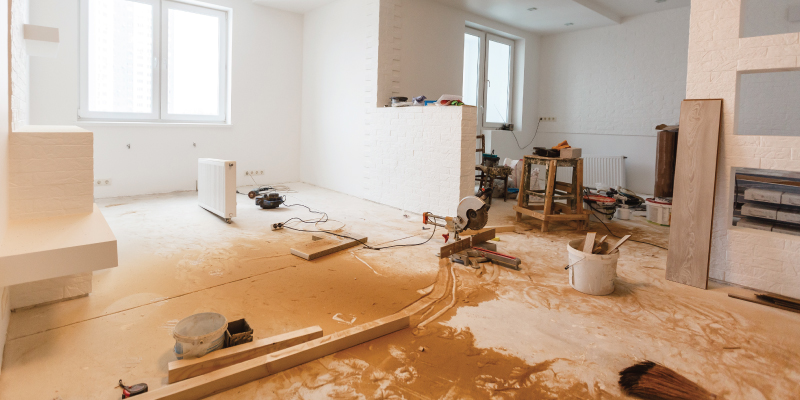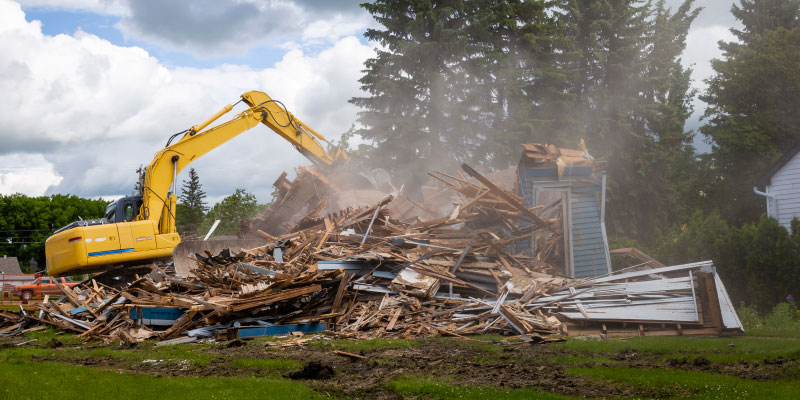
Updated November 3, 2023
When it comes to improving or upgrading your property, the decision between demolition and renovation is one of the most critical choices you'll have to make.
Both options have their advantages and disadvantages, and the decision can significantly impact your property's value, aesthetics, and functionality.
In this article, we'll explore the key factors to consider when deciding between demolition and renovation, helping you make the right choice for your property.
Jump to:
- Condition of the Existing Structure
- Budget and Financial Considerations
- Long-Term Goals
- Aesthetics and Functionality
- Historical or Architectural Value
- Environmental Considerations
- Zoning and Building Regulations
Find demolition contractors near you
Condition of the Existing Structure
The current condition of your property is one of the most crucial factors to consider. If your property is in a state of disrepair, with extensive structural damage or significant safety concerns, demolition might be the only viable option. Renovating a severely deteriorated building can be costly and is less likely to yield a structurally sound or safe result.
On the other hand, if your property is in relatively good condition and the issues are mainly cosmetic or related to outdated features, a renovation might be a more cost-effective and sustainable choice.
Budget and Financial Considerations
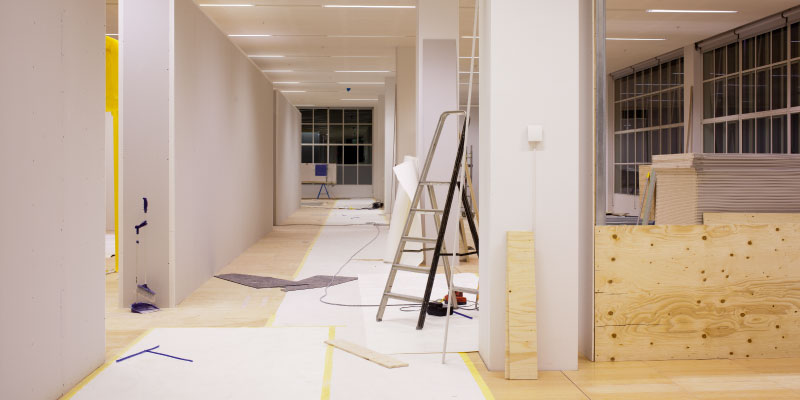
Budget constraints are a major factor in the decision-making process.
Demolition can often be more expensive than renovation because it involves tearing down an existing structure and starting from scratch. Renovation, on the other hand, can be more budget-friendly, especially if the structural components of the building are in good shape. Renovations allow you to preserve parts of the existing structure, potentially saving on construction costs.
However, it's essential to consider not only the initial cost but also the long-term financial implications. Renovating an older building may lead to higher ongoing maintenance costs, while a new construction might offer more energy-efficient options, potentially reducing utility expenses.
Keep reading:
- Building Demolition Cost Guide: How Much It Costs to Tear Down Various Structures
- How Much Does It Cost to Renovate a House?
- Slash Remodel Costs with These Easy Tricks
- Interior Demolition Cost per Square Foot
Long-Term Goals
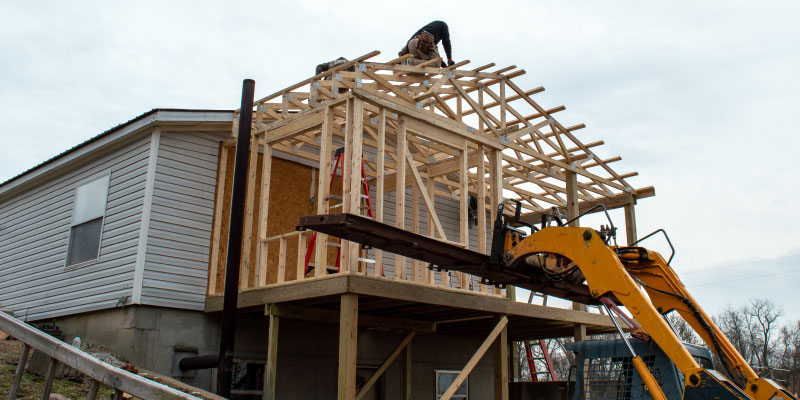
Consider your goals for the property. Your or your family's long-term goals play a significant role in determining whether to demolish a home or renovate it.
If you plan to stay in the home for an extended period, renovating might be a more appealing option as it allows you to tailor the property to your specific needs and preferences. It can also be a sentimental choice, preserving the memories and character of the existing home.
On the other hand, if you and your family intend to maximize the property's resale value or develop it for a different purpose in the long run, such as selling or renting it out, demolition and new construction may be the better choice, as it can provide a modern, marketable property that potentially yields a higher return on investment. Long-term goals are a crucial factor in aligning the decision with you and your family's future plans and objectives for the property.
Read more:
Aesthetics and Functionality
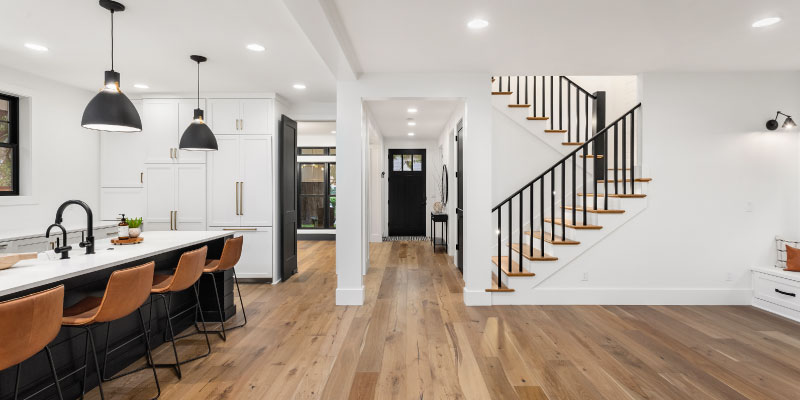
Desired aesthetics and functionality are fundamental factors in the decision to demolish or renovate a home.
If a person values the existing architectural style, historical features, or sentimental aspects of their home and wishes to maintain its character, a renovation is typically the preferred choice. Renovation allows for customization while preserving the property's unique charm.
However, if the desired aesthetics and functionality require extensive changes that are not feasible within the existing structure, or if the current layout severely limits functionality, demolition and new construction offer a clean slate to achieve the envisioned aesthetics and functionality, allowing for a more tailored and efficient result. The choice ultimately depends on the balance between preserving existing character and creating the desired space.
Learn more: 3 Remodeling Projects That Improve Your Home’s Accessibility and Boost Its Value
Historical or Architectural Value

If a property holds historical significance or features unique architectural elements, there may be a strong incentive to preserve and restore it.
Renovation is often the preferred choice in such cases, as it allows for the retention of these valuable attributes, contributing to the cultural and historical heritage of the property and the surrounding area. Additionally, there may be legal or financial incentives in place, such as tax credits or grants, to encourage the preservation of historically significant buildings.
However, if the historical or architectural value is limited or can be replicated in a new structure, the decision may lean more toward demolition and new construction, especially if the existing structure is in poor condition or doesn't align with the desired functionality. Ultimately, the determination balances the value of preservation against the practicality of renovation.
Keep reading: To Demolish or Not to Demolish: Historic Properties
Environmental Considerations
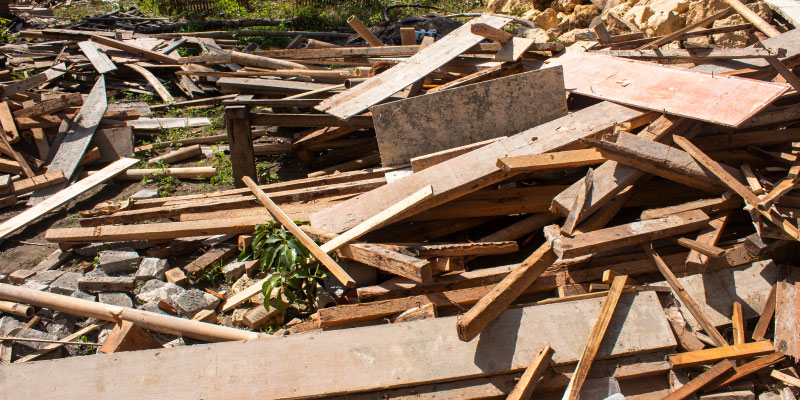
Environmental concerns are increasingly important in decision-making regarding property improvements. Demolition typically generates a significant amount of waste and can have a negative impact on the environment. Deconstruction is a sustainable option, especially if there are a lot of salvageable materials in the home, but costs go up with deconstruction due to the additional labor.
Renovation, especially if done with a focus on sustainability and energy efficiency, can be a more environmentally responsible choice.
Renovating an existing structure can often be faster than demolishing and building anew, reducing the environmental impact associated with construction activities, too.
The environmental impact plays a crucial role in the decision to demolish or renovate a home. Demolishing a structure generates a significant amount of waste and can have adverse environmental effects, including increased landfill use and resource consumption. Renovation, when approached with a focus on sustainability and energy efficiency, can be a more environmentally responsible choice. It often results in less waste and reduced carbon footprint, especially if the existing structure can be adapted to meet modern energy and resource efficiency standards.
Making an informed choice between renovation and demolition involves considering the environmental impact and the opportunity to minimize the carbon footprint of the project while achieving the desired improvements to the property.
Find out more: Eco-Friendly House Demolition: Sustainability in Deconstruction and Recycling
Zoning and Building Regulations
Zoning and building regulations have a significant impact on the decision to demolish or renovate a home. Local zoning laws can restrict or prohibit certain types of construction, and building regulations dictate the permissible modifications to existing structures. Some areas have strict zoning laws that might make it difficult to demolish and rebuild, while others may have incentives or more lenient regulations for renovations.
If the existing home doesn't conform to current zoning or doesn't allow for the desired renovations within the regulations, demolition and new construction may be the only viable option. On the other hand, if the existing structure complies with zoning and regulations and the renovations align with these requirements, renovation is often a more straightforward and cost-effective choice, as it avoids potential legal hurdles and permitting complications. Compliance with these rules is a critical factor in determining the feasibility and legality of the project.
Before making your decision, it's essential to consult with local authorities and understand the legal implications of your choice.
The decision between demolition and renovation is a complex one that depends on various factors, including the condition of the existing structure, budget, historical significance, environmental considerations, zoning regulations, long-term goals, and aesthetic preferences. It's crucial to carefully assess these factors and consult with professionals, like contractors and architects, to make an informed decision.
The right choice for your property will ultimately depend on your unique circumstances and objectives, so take your time to weigh the pros and cons before moving forward with your project, and be sure to obtain multiple quotes from local contractors to be sure you hire the best person for the job. Hometown streamlines this process by making it easy to request multiple free quotes with the click of a button, get answers to common demolition questions, and read verified customer reviews.


